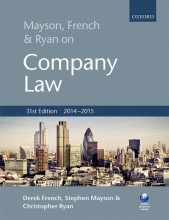Charitable Purposes - The Advancement of Education - Public Benefit
6 important questions on Charitable Purposes - The Advancement of Education - Public Benefit
Dingle v Turner [1972]
Dingle v Turner
Oppeinhem, Lord MacDermott dissented:
- Higher grades + faster learning
- Never study anything twice
- 100% sure, 100% understanding
Dingle v Turner, Lord Cross agreed with Lord MacDermott:
He emphasised that, whether the class of potential beneficiaries did represent a section of the public was a matter of degree, having regard both to the numbers in the class and to the purposes of the trust.
The other 4 judges agreed.
Dingle v Turner, Lord Cross went one stage further:
Lord Cross suggested that, in determining whether the public benefit test is satisfied, the availability of fiscal privileges should be taken into account.
If the purpose of the creator of the trust is to obtain fiscal privileges, then the trust should not be charitable.
If the purpose is to advance education, but the motive is to attract fiscal privileges, the trust should be regarded as charitable.
However, if the purpose, or one of the purposes, is to attract fiscal privileges, this is not a charitable purpose.
IRC v Educational Grants Association Ltd [1967]
Held: The company was not charitable because the income was not being applied for the benefit of a sufficient section of public.
Followed Oppenheim.
The question on the page originate from the summary of the following study material:
- A unique study and practice tool
- Never study anything twice again
- Get the grades you hope for
- 100% sure, 100% understanding































